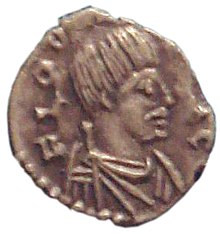Sciri

The Sciri, or Scirians, were a Germanic people. They are believed to have spoken an East Germanic language. Their name probably means "the pure ones".
The Sciri were mentioned already in the late 3rd century BC as participants in a raid on the city of Olbia near modern-day Odessa. In the late 4th century they lived somewhere north of the Black Sea and Lower Danube in the vicinity of the Goths. By the early 5th century, the Sciri had been subdued by the Huns, whom they fought under at the Battle of the Catalaunian Plains in 451 AD.
After the death of Attila, the Sciri broke free from Hunnic rule at the Battle of Nedao in 454 AD. They subsequently were recorded holding their own kingdom north of the Middle Danube, under the leadership of Edeko and his son Onoulphus. After the destruction of this kingdom by the Ostrogoths in the late 460s AD, Odoacer, another son of Edeko, attained high status within the Roman army in Italy, ruling Sciri, Rugii and other non-Roman peoples as a king. Odoacer eventually made himself King of Italy in 476 AD, effectively ending the Western Roman Empire.
Odoacer was in turn deposed and killed by Theodoric the Great in 493 AD. Along with the Rugii, Heruli and other Middle Danubian peoples, the Sciri might also have contributed to the formation of the Bavarii.
Name[]
Since the 19th century, the etymology of the Sciri name has been connected to such Germanic words as Gothic WIKI